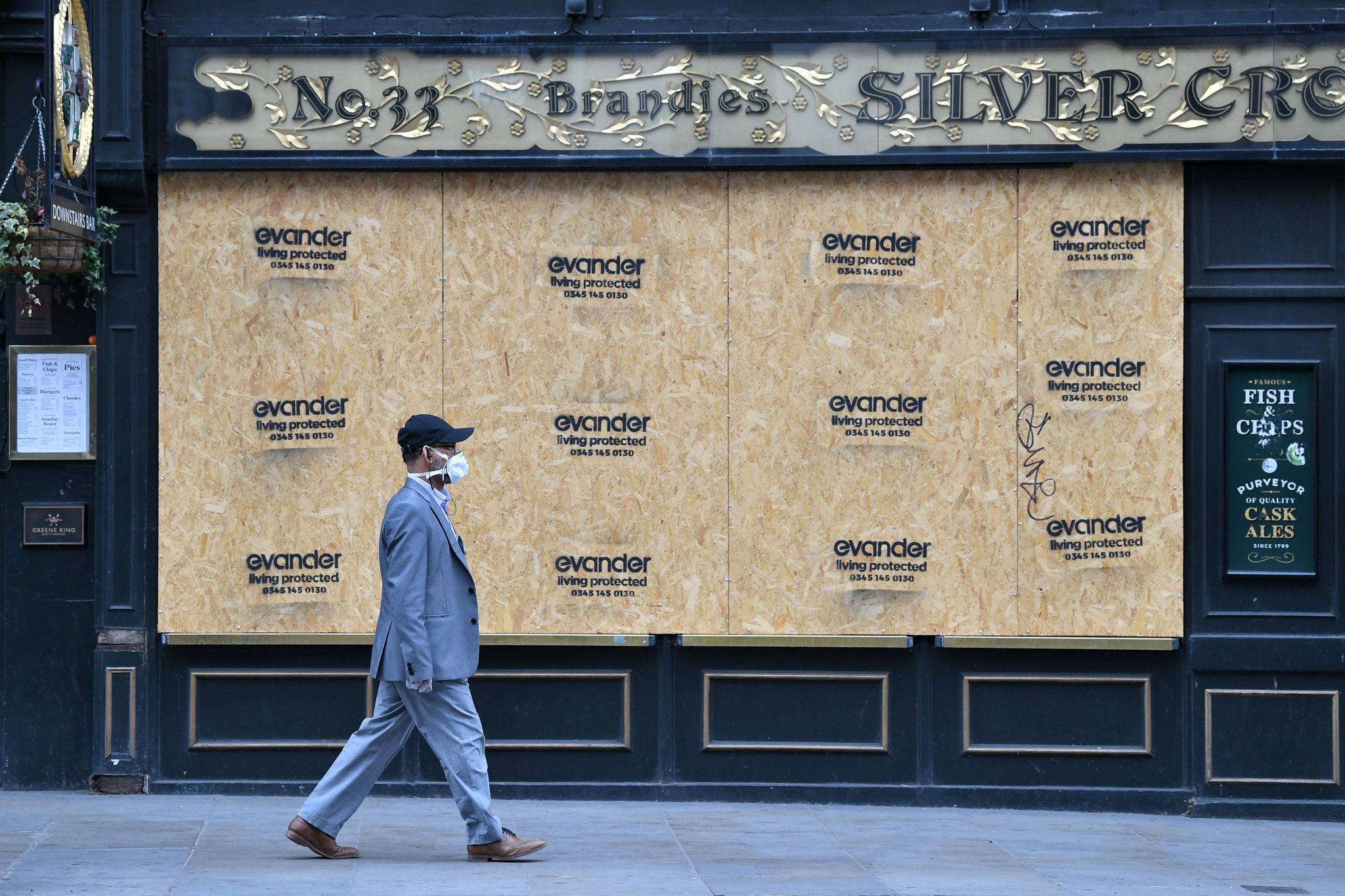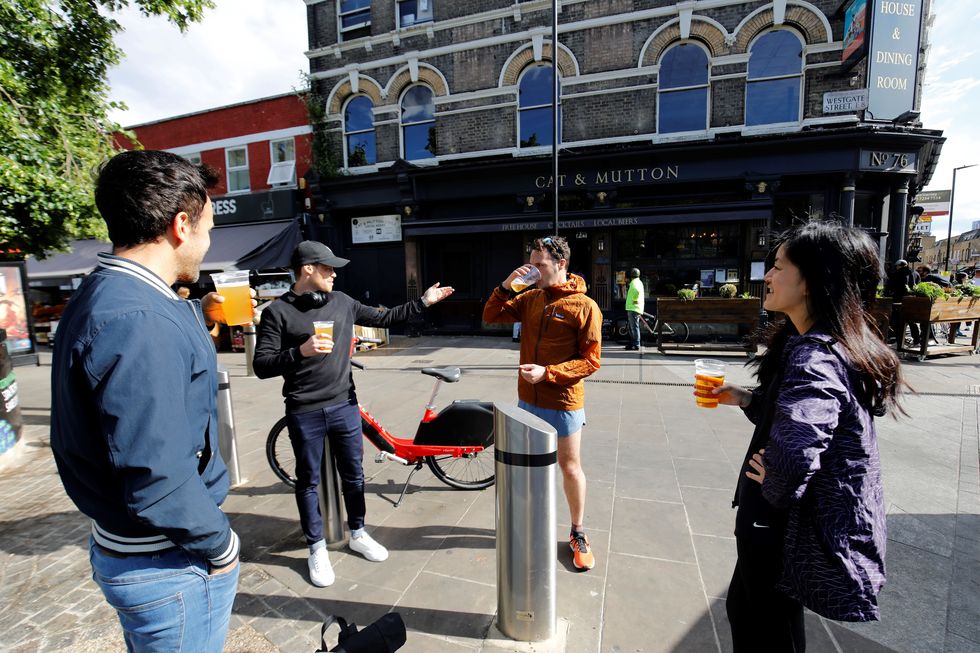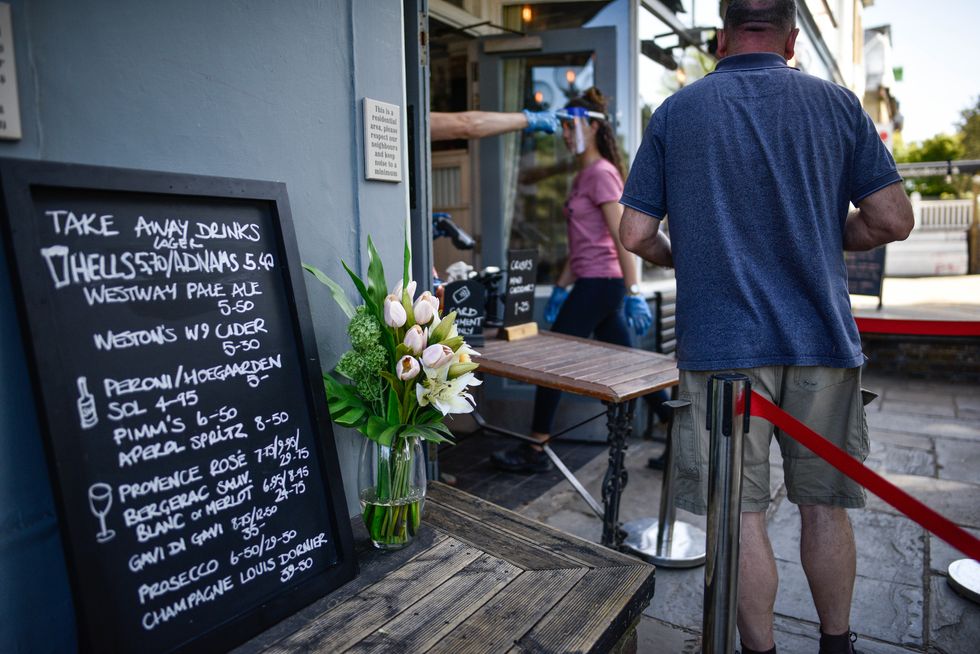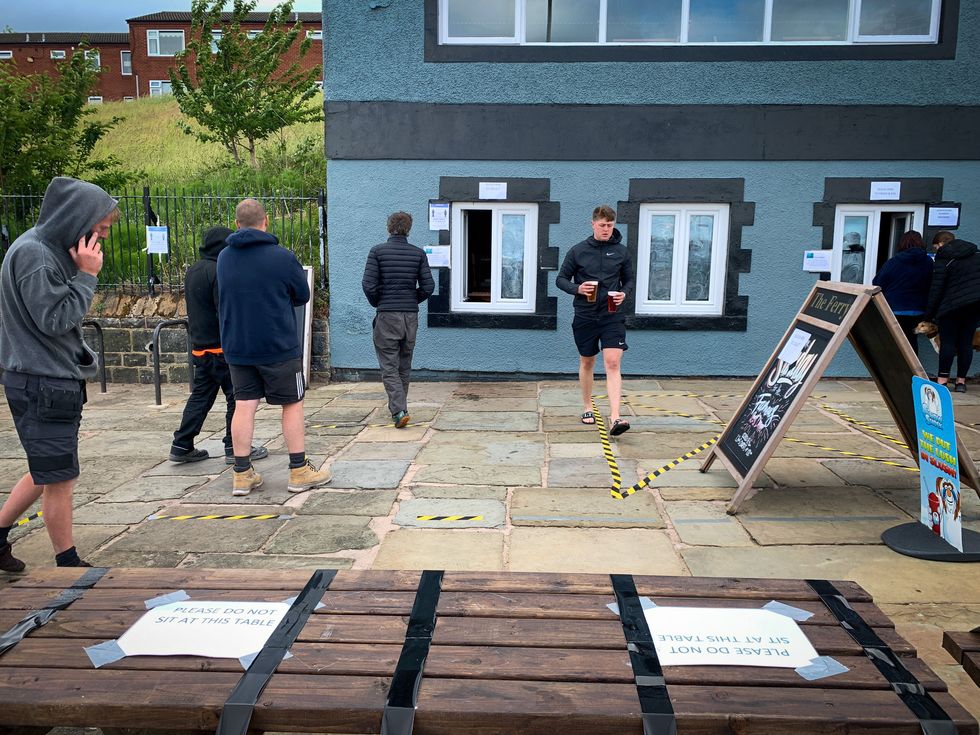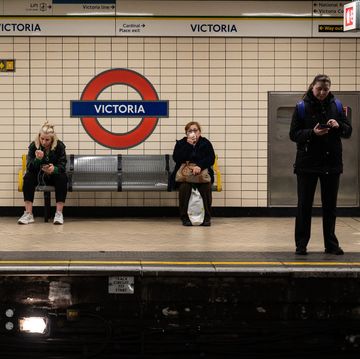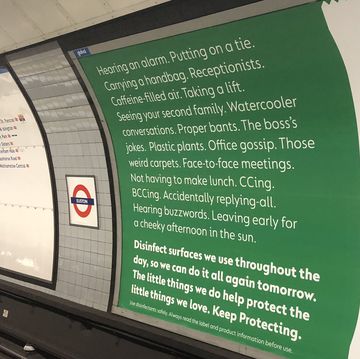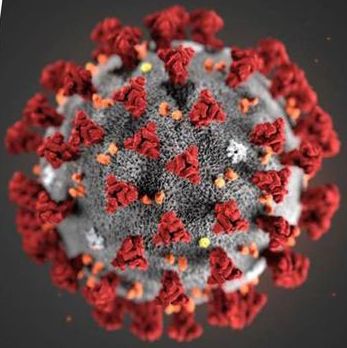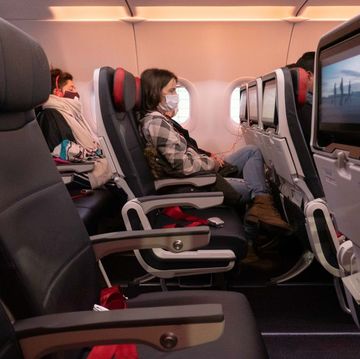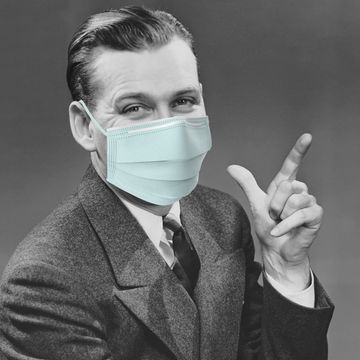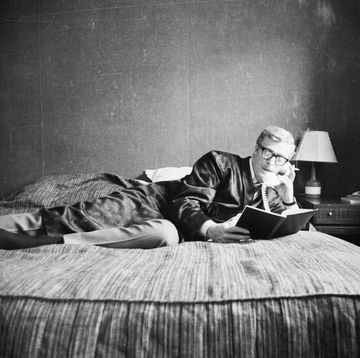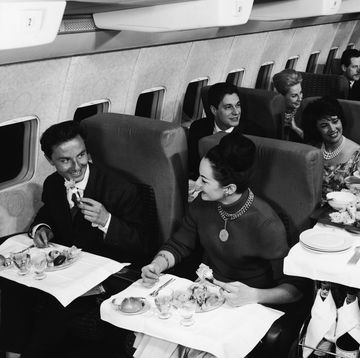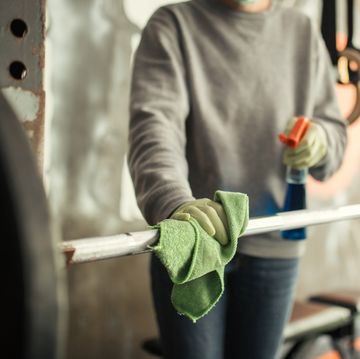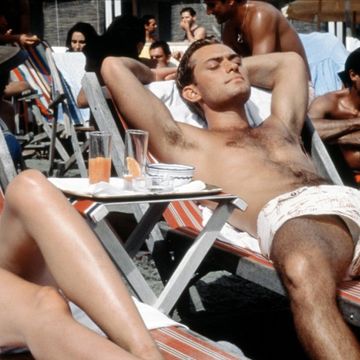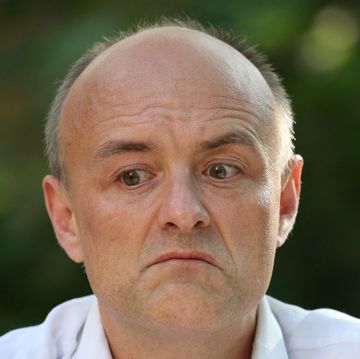All the quarantinis and Zoom quizzes in the world can't replicate the role of the pub in British culture, but the announcement of their reopening has been met with relief – and nervousness.
Pubs and bars in the UK shut their doors on 20 March, and though some are operating takeaway and delivery services, many have been effectively mothballed for the last three months.
The beer and pub advocacy group Camra reckons about £50 million of beer has gone to waste in that time, though Nik Antona, national chairman Camra, says now that's "a conservative figure". The owners of his local had to film themselves using their beer to water their garden as evidence for HMRC.
After spending so long staying at home, it's hard to say what our collective appetite for sitting in an enclosed space with other people will be like. In mid-May, a poll of nearly 22,000 people by the same organisation suggested that 65 per cent of people felt confident enough to return to the pub, though given that 90 per cent of respondents were Camra members that's perhaps unsurprising.
This isn't just about being able to slip in for a quick half, either. The stresses that the complex ecosystem of pubs, bars, brewers and the communities they serve have all had to bear are a snapshot of how fraught coming out of lockdown could be for the whole hospitality industry and Britain at large.
When will pubs reopen?
The government set 4 July as the earliest possible date for pubs and bars to reopen their doors for drinkers to sit in with pints way back in early May. On 22 June, that date was confirmed by Boris Johnson in an address to MPs.
What are the new Covid-19 safety regulations?
Publicans had been pressing for the government to relax the two-metre rule to make things more practical for more pubs. Instead, the rule is 'one metre-plus': the 'plus' there meaning extra precautions including face masks and other protective gear for pub workers, as well as changing seating so that drinkers are sat beside rather than next to each other. Greene King has said patrons will be greeted with a 'pub host', who will greet them and show them to a table.
But how effective will that be once everyone's several pints deep, and happy to see their mates again after three months inside? And which poor sod's going to have to go round telling people to chill out and step back?
Some measures we've seen in supermarkets will be brought in, like hand washing stations at entrances, extra protective coverings for bar staff and perspex screens between workers and patrons. You'll also have to register your details with the pub, which has to keep them for 21 days in case there's an outbreak. How that's going to quite work is unclear at the moment.
Rather than crowding around the bar, touching things with your potentially virus-carrying hands and breathing corona-y breath all over everything, Johnson told parliament that pubs would be "limited to table service" to promote "minimal" contact between staff and customers. The guidance recommends encouraging pub-goers to order online, via an app, or over the phone.
So we'll be able to sit inside the pub?
Yes, which some pubs had thought wouldn't be happening. Stu Miller of the George and Dragon in Hudswell, North Yorkshire, is one of many publicans having to work out where to fit people.
"The main issue we have is you can put people there, but then you've got staff, especially if we're having to do table service," he says. "And there'll be more staff because we'll be doing table service."
He's putting up marquees in the pub's sizeable patio and taking furniture outside, but that's not an option all city and town pubs will have.
"It's really hard," says Miller. "It's hard to think of all the different variations of things, and how are we going to get beer from the bar inside all the way outside without going within this metre?"
Setting up one-way lanes for staff isn't that practical for all pubs either, says Miller: "You should come see how small our pub is inside."
What else will be different?
There's a chance that your local might not be open when you actually fancy a drink. The guidance recommends pubs speak to others nearby and stagger their opening times to make sure things don't get too crowded. You may have to book a table in advance.
It's also going to be a lot quieter. Loud music and TVs showing sports are out, "to avoid people needing to unduly raise their voices to each other" and spraying each other with droplets, and there won't be any comedy, live music or theatre happening for the same reason.
There won't be any ketchup or mayo on tables either – pubs will bring them to you and clean them between customers, or you'll have to make do with those little sachets.
Toilets will be one-in-one-out, presumably meaning yet even more queueing.
Who can I go to the pub with?
Indoors, "groups of up to two households (including support bubbles)" are allowed, while outdoors it will be "groups of up to two households (or support bubbles), or a group of at most six people from any number of households".
So, you and your partner could meet another couple, or you and your flatmate could meet a mate from another house inside the pub, but if you grabbed a picnic table you could meet five friends from five different houses.
"I'm trying to get my head around how that will work," says Miller.
Is coronavirus changing pubs for good?
Some pubs have turned themselves into impromptu delis stocking fruit and veg, beer to take away and other essentials. The little shop at the George and Dragon has made sure that the pub could clear the beer out of its cellars to customers, and maintain it as a point of social contact.
It's too early to say if any of the new measures will become permanent, but the presence of pubs on high streets around the country could change. Pubs missed out on the extra trade that April and May's sunny weather and the longer evenings can bring, as well as big events like Pride celebrations and the 75th anniversary of VE Day which draw people in. Add to that the after-effects of the period when pubs were still allowed to welcome visitors, but were warned against doing so by the government. The number of pubs in the UK has been steadily declining over the last 30 years, and though the rate had been slowing, the coronavirus could make things worse in the short term.
"There is going to be casualties in the industry, unfortunately," says Antona. He is hopeful, though, that in 12 months' time, "we might find we’re back to where we were" as far as the number of pubs goes. Whether landlords and breweries looking for money in the middle of a recession will turn down the advances of developers remains to be seen.
What about breweries?
Pubs need beer, obviously, and smaller breweries will be far worse affected by the lockdown than multinationals.
After three months out of action, Antona says, some brewers will have to restock on hops, barley and other materials to actually make beer as well as doing a deep clean and sterilisation of their premises and kit. That's going to be a difficult cost for brewers who didn't qualify for government help. If no brewing at all has been happening, their yeast will need to be reactivated too, which can take days.
"In a lot of cases, they put it into dry storage and deposit at the National Yeast Bank [at the University of East Anglia]. So they have to get that sample back, get it going again, feed it, and get it back to a stage where it actually could start fermenting the beer."
You might find that there are fewer beers to pick from when you go to the pub too. Tied pubs, with tenancy agreements which oblige them to buy a certain amount of beer from the brewery which operates it might struggle to hit targets after missing three important trading months, Antona says.
"A lot of those pubs won't get anywhere near those agreements, so the big pub companies that have contracts with the bigger breweries will be forcing the pubs to have the beers that they are contracted to have."
That would mean less opportunity for smaller, local brewers to actually get their beers on taps in pubs frantically trying to fulfil their contracts by shifting the beer their brewery tells them to. Less taps for guest beers means less choice for customers and less money for brewers at a time when they really need it.
What do pubs make of the new advice?
"It's gonna be so weird," says Miller. He's "worried, just about how it's all going to work" and how stressful staff are likely to find a brand new way of working.
Being in the Dales, just outside Richmond, spring and summer are critical: "October to March, we don't really make any money at all." Having missed out on bank holidays and good weather, Miller reckons the pub could be down as much as £20,000 per week. Things might be manageable "The issue is going to be that we haven't made the money to see us through winter."
Miller worries that things will be busy on a Friday and Saturday but then quiet for the rest of the week. It's a community-owned pub and thanks to that it hasn't had to make rent payments over lockdown or scrap with a pub or landlord over the government's £10,000 coronavirus cash grant, but the necessity of having more staff in for table service complicates matters.
"Do you take all your staff off furlough? Do you try and leave some of your staff furloughed? That's the big cost."
Other financial headaches include the pub's insurance company not having paid out for notifiable disease coverage, and Miller can see "lots and lots of complications" with making their small kitchen covid-safe too. There's something more fundamental too.
"One of the big things is, are people going to come straight back to the pub?"
How else can I support my local?
As part of its 'Pulling Together' campaign, Camra has put together an extremely handy clickable map of pubs, bars, breweries and cider producers across the country which you can order from direct, and many are offering free delivery if you're in the local area – have a look what your nearest brewers and pubs are offering here.
Some brewers are helping out too. Camden Town Brewery, for instance, is selling cans of a beer called To The Pub, the profits of which will be used to brew kegs being sent to pubs for free to boost their stocks ahead of reopening.
Like this article? Sign up to our newsletter to get more delivered straight to your inbox
